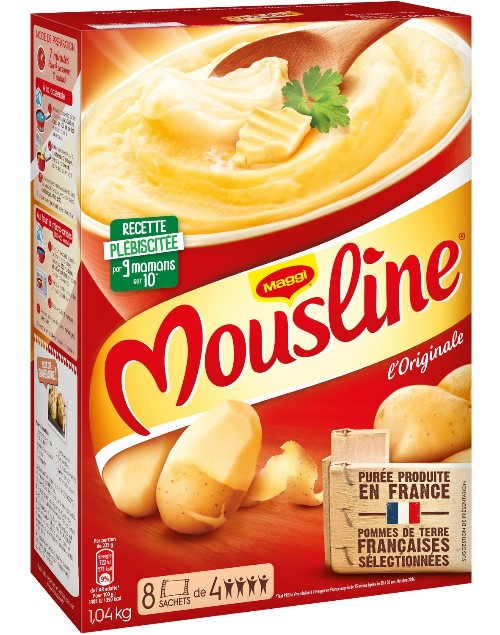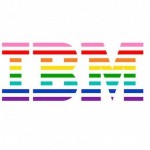Blockchain
Carrefour and Nestlé Partner with IBM to Extend Use of Blockchain to New Food Categories
April 15, 2019 | Written by: IBM THINK Blog
Categorized: Blockchain
Share this post:
 Blockchain technology is bringing much-needed transparency and traceability to more parts of the global food supply, including lettuce, spinach, berries and, now, mashed potatoes.
Blockchain technology is bringing much-needed transparency and traceability to more parts of the global food supply, including lettuce, spinach, berries and, now, mashed potatoes.
International food companies Carrefour and Nestlé announced this week that they will add Mousline purée, a popular instant mashed potato mix available in France, into the Food Trust blockchain network.
Mashed potatoes have been a beloved food in France since the dish was invented there in the 1800s. Ensuring the potatoes are grown in France, and of the highest quality, is important to French consumers making this an ideal food to provide traceability. A barcode on the 520g packages can be scanned with a smart phone, giving consumers valuable information about the mix they’re about to prepare, including the region where the potatoes were grown and varieties used, quality control in the Nestlé factory where the product was made, and the places and dates of storage before it reached the grocer.
Carrefour, Nestle and IBM believe that by using blockchain as part of a collective, they can bring increased transparency to what consumers eat, and grow their business while promoting food safety. “We want to bring the full story of the food to the customer,” said Sandra Calabre, a client executive with IBM France.
The partnership is the latest sign of momentum for Food Trust, a rapidly expanding blockchain-based network that’s bringing more transparency to the otherwise opaque global food supply chain of growers, processors, wholesalers, distributors, manufacturers, and retailers. The decentralized platform uniquely benefits each participant by optimizing supply chain processes, increasing freshness, improving food safety, minimizing waste and cost, and providing trusted provenance of our food.
Most recently, Albertson’s, one of the largest food and drug retailers in the U.S., announced it was joining the Food Trust ecosystem and would pilot the technology with lettuce. Walmart is also using it to trace all leafy greens and many other food products. The Food Trust now has more than 80 food brands, including Dole, Golden State Foods and Driscoll’s, and more than five million products have been sold through the network.
Safety and Trust
The new Mousline purée packaging from Carrefour and Nestlé will be introduced at key stores in France this week, followed by broader rollout throughout the country. Carrefour, which operates more than 12,000 stores in over 33 countries, is expected to track and trace more of its prepared food products in this way in the future.
By creating a decentralized ledger that records transactions in a global food network, blockchain is being used to untangle the dense web of growers, suppliers, manufacturers, retailers, regulators, consumers, and restaurants. The secure data-sharing platform lets participants share information about food origin, processing, and shipping information in a permissioned way ensuring the data and insights gained remain the property and under the control of the respective companies. The governance model is enforced by the Food Trust’s Advisory Council, comprised of a range of industry innovators and leaders.
In past years, a lack of traceability and a profusion of intermediaries have hindered the quick identification of the sources of contamination in a number of food provenance emergencies. Raj Rao, General Manager, IBM Food Trust, says blockchain can help improve our global food ecosystem, making it smarter, safer, and more sustainable for all. The technology uses the food industry’s widely adopted GS1 standards, is built on the open source Hyperledger Fabric, and has the ability to run on multiple types of cloud networks.
“The root of many problems in our food systems is the lack of transparency: how visible the information is, how well people are able to understand what is going on and react in a timely and appropriate manner,” said Rao. “With blockchain, all the participants in the supply chain can come together on a neutral playing field to share important information that will benefit the entire food ecosystem. This provides transparency for the consumer, while preserving data ownership for the companies involved.”
Making the workplace safe for employees living with HIV
The recent promising news about Covid-19 vaccines is in sharp contrast to the absence of a vaccine for HIV, despite decades of research. Unlike Covid-19 with a single viral isolate that shows minimal diversity, HIV circulates in a wide range of strains that so far have proven impervious to a single vaccine. Fortunately, more people […]
Call for Code for Racial Justice Needs You: Join the Movement
IBM has never avoided taking on big challenges. At IBM, we are privileged to drive impact at scale. We take on challenges that transform our clients, impact people’s lives and innovate for future generations as we strive to effect systematic societal change. Over the course of our 109-year history, the evidence has become clear that […]
A New Wave: Transforming Our Understanding of Ocean Health
Humans have been plying the seas throughout history. But it wasn’t until the late 19th century that we began to truly study the ocean itself. An expedition in 1872 to 1876, by the Challenger, a converted Royal Navy gunship, traveled nearly 70,000 nautical miles and catalogued over 4,000 previously unknown species, building the foundations for modern […]



